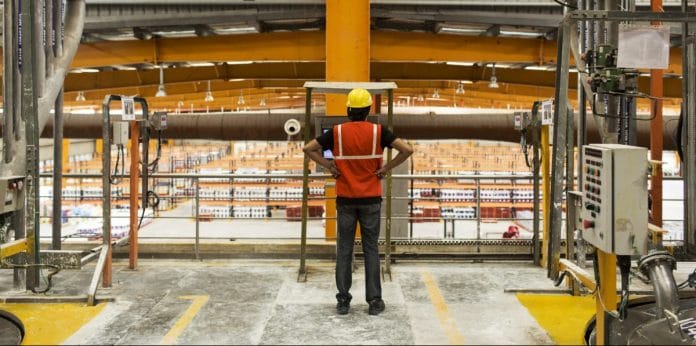Overseas buyers from Walmart to France’s Schneider Electric SE have made multi-billion-dollar bets in India.
Indian companies have been involved in deals worth a record $97.6 billion this year. Top banker JPMorgan Chase & Co is predicting more offshore interest in the nation, particularly in technology, media and telecom.
Walmart Inc’s $16 billion acquisition of a majority stake in Indian e-commerce company Flipkart Online Services Pvt Ltd — a deal JPMorgan advised — has been the biggest so far, pushing the total past a previous annual peak of $92.3 billion, according to data compiled by Bloomberg. India’s bankruptcy process has also spurred activity with more than $26 billion in distressed steel assets coming on the block, while a price war in telecom forced consolidation.
“This year, if there is one stand-out product it is really M&A,” said Kalpana Morparia, the chief executive officer for South and South East Asia at JPMorgan, which climbed to the top spot in India for the first time in at least a decade. “We are seeing some great examples of inbound M&A and a fair amount of domestic consolidation, largely spurred by the bankruptcy process.”
Overseas buyers from Walmart to France’s Schneider Electric SE have made multi-billion-dollar bets in India to tap into the promise of rising consumption by an increasingly interconnected middle class. The nation’s focus on improving infrastructure and cleaning up $210 billion of soured loans in the banking system has also helped investors brush aside concerns about the economic fall out of a global trade war and rising crude-oil prices.
Already there are more billion-dollar deals being weighed, as UK pharmaceutical giant GlaxoSmithKline Plc examines selling its stake in its local consumer health subsidiary, worth about $3.1 billion, and Kraft Heinz Co considers the sale of its children’s milk drink brand Complan in India, which may fetch about $1 billion.
Technology, media and telecom along with financial services will probably remain the most active sectors for inbound deal-making this year and next, JPMorgan’s Morparia said in an interview.
“Both play on the core macro and micro themes around consumption and digitization of India and we are still at early stages of evolution of these themes,” she said. “The power of data will play a critical role for India in the next two-to-five years.”
JPMorgan headed the league table with a 42 per cent share of deals struck, climbing from 10th place in 2017. It was followed by Goldman Sachs Group Inc and Citigroup Inc, while Arpwood Capital Pvt was the highest-ranked local banker in 10th position.

The role played by financial sponsors such as private equity firms and pension funds in the Indian deal space is increasing — both in terms of selling some investments as well as tying up with local companies to bid for assets on sale through the bankruptcy process. These are not just traditional private-equity funds, which have been in India for the last 20 years, but include longer-term pension funds, said Morparia, who is the senior-most woman banker in South Asia with more than 43 years of experience in the sector.
Investments by private equity and venture capital funds rose by nearly 50 per cent to $15.2 billion in the first half of this year, compared to $10.4 billion in the same period last year, according to an EY report. The number of higher-value deals is also rising with 36 transactions above $100 million, against 20 deals in the year-ago period, the report showed.

Morparia also shared her views on bond sales and the impact of a trade war:
Advice to clients looking at overseas bond sales?
We are telling clients looking at debt issuance to keep on watching the market in case we find a sudden window. One should be in a constant state of readiness.
Going by my experience, I have not seen the markets being illiquid or not open for a period of time. I am sure it will open up and, if not, people will make a call on whether it is wise to go ahead with 20-30 basis point wider margins.
How will trade tensions impact Asia?
We are reacting to the trade war based on some announcements made by the US, while the rest of the world has extreme and great interest in trying to sign unilateral or multilateral deals among themselves. For instance, Europe is not saying that they don’t want to deal with Asia. I don’t see this impacting our business.
I see business picking up due to intra-Asia trade. With a relative cooling off of tensions in North Korea, if you look at APAC countries — whether it is Japan, Korea, Indonesia, China, India, Vietnam — there are plenty of opportunities for a two-way flow of trade.”- Bloomberg






